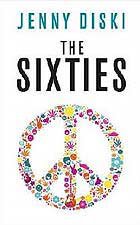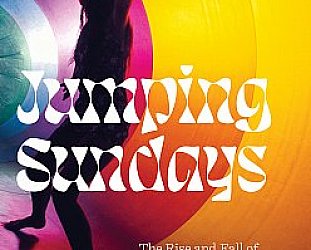Graham Reid | | 4 min read
The Beatles: Baby You're a Rich Man

Has any decade been more feted, essayed and mythologised than the Sixties? The flowers in hippies’ headbands had barely wilted when the analysis began, and since then many of those who were there have hailed it as rare period in human history, the like of which . . .
The past few years have seen 40th anniversaries: the assassinations of JFK, MLK and RFK; anything Beatles-related especially Sgt Peppers; and of course more recently Woodstock for which television news editors must have been especially delighted: “We have footage . . . we have new footage!”
One of the reasons for so much analysis -- beyond self-mythologising by some who played a pivotal, or even a marginal, role -- is that “the Sixties” manifested itself in the developed nations in so many different ways.
There was little in common between the axis of Swinging London with its Edwardian foppery and the Bonzo Dog Doo-Dah Band with that of frontier-style buckskin chic, Country Joe and the Fish and anti-Vietnam protest in America.
Then there is the problem of defining “the Sixties”: the long view says the changes started with the Beat Generation and CND marches in the 50s and stopped when John Lennon declaimed “the dream is over” in late ‘70 on his Plastic Ono Band album.
Others subscribe to the “short Sixties” which began with the Beatles on The Ed Sullivan Show in January ‘64 and ended when Charles Manson was on the cover of Life in December ‘69.
And the Sixties in New Zealand? Larry’s Rebels, Happen Inn, Keith Holyoake, Playdate, Tim Shadbolt, protests against American vice-president Agnew . . .?
New Zealand’s 60s was hardly going to trouble English writer Diski, but nor do many of these other matters: her economic collection of interlocked essays locates her 60s firmly in London and in places traverses familiar territory: how the Cuban missile crisis scared the beejesus out of people; the post-war austerity of the 50s giving way to daring frock shops such as Biba and velvet jackets in boutiques like Granny Takes a Trip; the world suddenly going from black’n’white to colour (clothes, television); the observation that the new generation dictated its own uniforms and conformity, among them that sex was to be given freely because to do otherwise would seem rude . . .
These are hardly original ideas, but Diski makes some astute and encapsulating observations: “Record covers became art, art became tea towels”; “Pop Art in its very shallowness rejected the old ways. Separated, actually, the young from their elders”; and of drugs: “It seemed ridiculous to choose not to be stoned” and that dire warnings about LSD were to no avail because “even the risk of madness was preferable to being on nothing at all”.
Drugs today, she notes, are largely disassociated from cultural imperatives.
Where these short pieces take real life however are in her own recollections of a terrifying adolescence: three psychiatric hospitals, dysfunctional parents; and gobbling prescription pills to numb herself.
In many ways Diski missed the brightly enjoyable parts of the period (her early refrain that the music was great seems cynical in retrospect) but her analysis is the astute for what happened in the early 70s when she started a free school for troubled kids in London.
The liberating sexual revolution hadn’t made any difference to them; the great changes had passed their parents by. Mundane life had just gone on for most people.
It’s worth remembering Ray Davies’ lovely Kinks song Waterloo Sunset was written for his older sister who was just bit too old and too married to enjoy the pleasures and freedoms of Swinging London. So were most people.
The self-indulgent 60s didn’t change much but in many ways lead to the darker drugs of the 70s, the violent revolutionary Left (and the Right’s reaction), and as Charles Shaar Murray, quoted here, noted in 1988: “The line from hippie to yuppie is not nearly as convoluted as people like to believe and a lot of old hippie rhetoric could well be co-opted now by the pseudo-libertarian Right . . . get the government off our backs, let the people do what they want -- that translates very smoothly into laissez-faire yuppyism, and that’s the legacy of the era”.
Diski, now in her early 60s, reflects much the same: “What alarms me is how little has actually changed” she says, noting women are still paid less than men, millions are starving, “the wife of the first minister of Northern Ireland felt able to call homosexuality ‘an abomination’ in 2008”, corporations have consolidated their power, and the planet is frying.
Her generation now makes television programmes like Grumpy Old Men.
“Most of us who had the good fortune to be part of the Sixties are plain discouraged,” she concludes.
Diski’s voice is a corrective to the cheerleading for the era from some quarters, but there have always been those less enamoured with this golden age than they were suppose to be.
As far back as 1980 Greg McGee central character in Foreskin’s Lament said: “The effect of the Sixties on the great miasma amounted to an extra inch of whisker on the end a Taranaki farmer’s side-board.”







post a comment